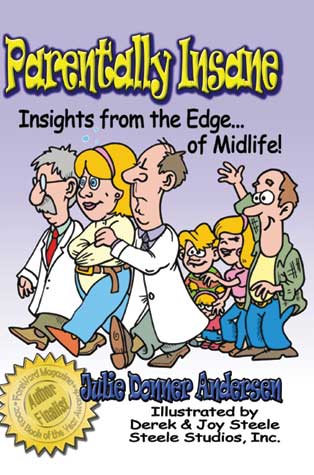I got a letter the other day from a GOW who has been with her W for 2 years. He had been widowed five years prior to their meeting. Having successfully completed bereavement recovery classes years before, she felt her W had moved on and let go long before they met. However, she was annoyed at how much he seemed to enjoy playing the grieving widower around certain people, especially his former in-laws, and was curious as to why.
I think most Ws suffer from "Gotta make other people understand that grief never stops" syndrome...and I believe it is closely tied to the canonization stage of grief. In other words, it is important for Ws that other people realize he has not forgotten - nor stopped loving - his LW. Ws like being thought of as noble in their grief, and when they take on a new love, some of their halo's polish wears off. Thus, they need to remind people that, although they have moved on, they are still longsuffering goodfellas who haven't erased LW from their minds.
I think the "longsuffering goodfella", AKA: the W, is quite attractive to society in general BECAUSE he is suffering: It means he must really know how to love if he grieves its loss so badly. It also means he must really be a good man who honours his wedding vows of "til death do us part" and has a proven track record of commitment. Thus, society tends to hold the bereaved up on a pedestal. Society loooves to compartmentalize, label, and yes, hero worship. ;)
Thus, some Ws tend to believe what they know society thinks of them - and they take a certain pride in their halos, as if grief were a badge of honour earned in the battlefield of loss. They feel almost duty-bound to uphold the reverence of such a noble title. Doing so shows the world that he is a good guy…a champion among men…one who, though once crushed and wounded, has risen above the ashes and then danced in them.
But not so fast! Dancing in the ashes of victory over grief can backfire when society feels that, in doing so, the W has made sure his past has been destroyed, forgotten, and ignored. If a W who enjoys his title is to keep up the façade of nobility (and his imagined responsibility to those who also experienced the same loss, such as his former in-laws), he must not allow the world to witness his inner victory dance, lest they stop holding him in high esteem.
Such is the case with certain Ws who feel they must keep the sad, mourning routine going for the sake of their LWs’ family or anyone else, even though they are far beyond bereavement. These men fear that any hint of their moving on and letting go may disappoint the others, and they are afraid others may be angry about their choice to do so. And yes, some of these Ws have grown accustomed to their shiny halos of sad nobility, even those who have long ago recovered.
There are even those Ws who enjoy the attention of being longsuffering, negative though it may be. Never before having been the center of attention, they quickly learn that being in the spotlight as the ever-grieving widower garners a great deal of sympathy and kindness, the likes of which he may never have experienced before….and it feels soooo good to bask in this kind of love. It’s hard to let go of something that feels so soothing and comforting, regardless of how enabling it is.
This is not to say that ALL Ws experience this kind of subconsciously manipulative behavior. Those who do are usually Ws who not only have had a very close interpersonal relationship with the former in-laws and/or an on-going friendship with former friends of LW - but have kept this bond going ONLY because of their shared mutual loss. It’s not entirely the W’s fault, either: the in-laws and friends derive a great deal of satisfaction from this kind of bond. What they fail to do is to see their son-in–law/friend (the W) as a man autonomous from the LW. In other words, they have a hard time imagining him as anything other than LW’s husband, not as a unique individual who might have other plans and dreams apart from being “one of them” (longsuffering survivors).
Thus, when a GOW enters the picture, she may be seen as the interloper - the person poised to “replace” the LW and knock her off the imaginary pedestal they have worked so hard to erect in her memory. The W in this scenario now faces a new challenge: how to keep moving ahead with his plans, moving on with his life, and letting go of the past so he can be released from its chains enough to love again….yet STILL prove to LW’s family and friends that he will never stop loving nor forget LW, enough so their worries and fears are groundless. He thinks that the way to do this is to keep LW’s memory live in their presence, even when his GOW/WOW is also in attendance. Little does he realize that doing so minimizes what his GOW/WOW means to him and hurts her feelings.
This is when the “tough love” that comes with being a GOW/WOW must be initiated via good, honest, and forthright communication of her needs, thus urging W to re-evaluate his priorities as to where and with whom his loyalties lie. This can be tricky for him, as he does not want to hurt neither his family/friends nor his GOW/WOW with such a decision. He fears that choosing one over the other is what he must do, and if so, someone is bound to be hurt. Guilt then ravages his soul, knowing he MUST release his charade of longsuffering, but not wanting to for fear he will no longer be the goodfella he has come to know and love about himself.
Although not exactly a stage of gruief, this IS a stage of bereavement recovery...and as with all things grief-related, a W i n this position will eventually work it out, and this too shall pass.
Sunday, February 6, 2011
Subscribe to:
Posts (Atom)









